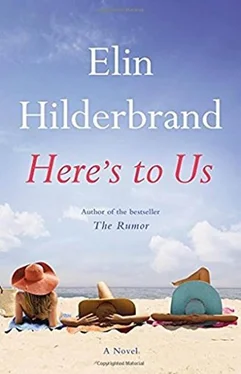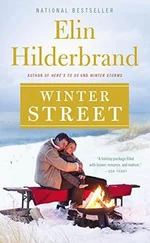“No,” Laurel said. She was allergic to that term.
“You got a husband?” Ursula asked.
Laurel stared at her computer screen. There was a hotel on 162nd Street where she could put Ursula and the kids for three nights. That would have to do, and it would be better than a shelter.
“Not presently,” Laurel said.
“But you were married?” Ursula asked.
“A long time ago,” Laurel said. She smiled at Ursula in a way that, she hoped, put the topic to bed.
“But you divorced now?” Ursula asked.
“Yes. Divorced.” She didn’t dare mention that her ex-husband was none other than Chef Deacon Thorpe. One thing about Laurel’s clients: they watched a lot of TV. Ursula might have been a devoted Deacon fan, one of millions who had sobbed upon hearing the shocking news of his death.
“Your husband cheat on you?” Ursula asked.
Laurel said, “I can put you in a unit at the Bronx Arms Hotel until Saturday, two double beds and a cot. How does that sound?”
“You don’t have to be embarrassed,” Ursula said. “All men cheat. That what they do.”
Laurel had five other families to place before the end of the day, but the unfortunate conversation with Ursula kept Laurel preoccupied.
All men cheat. That what they do.
Laurel ordered herself to stop thinking about Deacon. This had happened nearly every day for the past six weeks: he took up residence in her mind and refused to leave, like a squatter.
She opened the birthday card. It was Snoopy dancing with his nose in the air, and a message that said, Someone Special Is Having a Birthday! On the inside of the card, in his nearly illegible scrawl, the card was signed, Forever love, D.
Forever love: high school, Hayes, culinary school, the first TV show, divorce. Most people would stop there, Laurel realized, but her relationship with Deacon, no matter how bad it got-and it had gotten really bad those first few years with Belinda-had always been set on a foundation of unconditional love, laid at a tender age. Her love had been a staple for him, like flour or salt in his pantry. When he moved back to New York and Belinda was away on location, Laurel occasionally met Deacon at Raindance for a drink. Those nights had always ended chastely, but Laurel loved that Deacon kept them hidden from Belinda. And then, years later, when Deacon and Belinda had the big fight and Belinda stormed off to Los Angeles in anger, who had Deacon called?
Laurel.
She and Deacon had spent five days together in the Virgin Islands. This was a secret Laurel guarded with her life. Nobody knew-not Buck, not Hayes, nobody. Laurel pictured the secret as an obsidian marble, dense and black, nestled in a remote pocket of her brain. Every once in a while, it slipped out and rolled around, and Laurel would remember the sun in St. John, the sailing, the sex.
Later still, once Deacon was married to Scarlett and the father of a baby again, he and Laurel had settled into that place where all divorced couples would like to eventually end up-a place of peace and, yes, love, and appreciation for each other, and gratitude for the past they’d shared, and respect for the things they’d learned and the ways they’d grown side by side. Laurel had always had a bit of the Pollyanna in her, she supposed, which made coming to a place of true forgiveness with Deacon easier. In the past ten years, Laurel and Deacon had talked once a week, they had seen each other on holidays with Hayes, they had served as each other’s emotional backstop. When Laurel had ended her last relationship-with Michael Beale, a public defender she’d met through work-she had called Deacon to vent. And, only a couple weeks before he died, Deacon had called Laurel and told her the whole sordid story about the stripper and the Saab and leaving Ellery at school until it was so late that the headmistress was forced to contact Buck.
Deacon had told Laurel then that he would stop drinking. Laurel told him that his best bet was a program-she had seen it with clients too many times to count-and that there were fifteen daily AA meetings within a four-block radius of his apartment on Hudson Street. You just walk in, Laurel said. I’ll go with you.
Nah, Deacon had said. I’m going to lone-wolf it.
That won’t work, Laurel had thought but not said out loud. She had learned that coercion didn’t work with addicts. Deacon would go when he was ready; he would go when he’d hit rock bottom.
When Buck called to say Deacon had died of a heart attack, she had immediately thought: Cocaine. But the tox report came back squeaky clean. Deacon had apparently been on the back deck of American Paradise, smoking a cigarette, drinking a Diet Coke, and watching the sun go down, when his heart quit.
She read the card again: Forever love, D. And then, although she really didn’t have time, Laurel dropped her face into her hands, and she cried.
Sula’s brothers wanted to take him spear fishing; the Australians wanted him to surf the left break on the far side of the reef. Hayes wanted to lie in the yellow sand with Sula and shoot up. The dope was plentiful on Nusa Lembongan; there was a drug lord on the other side of the island who intercepted shipments from Lombok to Java and skimmed off the top. The drug lord wanted American dollars; Hayes wanted to stay high for the rest of his natural life.
His father had been dead for a month and a half. He’d had a massive coronary, a phrase Hayes found chilling. The death had been sudden, unexpected, violent.
Hayes’s mother was destroyed; his sister Angie had been rendered bloodless, limbless, blind, deaf, and dumb; and Buck had called insisting he needed to talk to everyone “as a family” about “Deacon’s affairs.” At first, Hayes had thought Buck was referring to Deacon’s actual affairs, which seemed indiscreet, but then Hayes decided he meant the will, money, and stuff, which might have been a beacon of hope except for the ominous tone of Buck’s voice. Scarlett was still in Savannah, apparently-at least, that was what Hayes thought Buck had said. The reception had been poor.
The upshot was that Hayes was flying out tomorrow. He would land in New York after a twenty-hour journey and drive Angie up to Nantucket.
He didn’t want to go.
And so, he would ignore it for now.
Hayes and Sula lounged in her bedroom, one of six teak buildings in the family compound. In the room was a mattress on the floor sheathed in a white silk sheet that was rapidly growing grubby with their sweat, and a Buddhist shrine in the corner. The room smelled like dying flowers and rotting fruit.
Sula’s family-her father and her three older brothers-was the second-wealthiest family in Nusa Lembongan, after the drug lord. Sula had been to university in Australia and spoke perfect Aussie-accented English, which charmed Hayes. She had suede-brown skin and syrupy brown eyes, and she shot Hayes between the toes with the sweetest dope he had ever known short of the pure opium he had smoked in the Jiangxi Province of China. The old Chinese man who had offered Hayes the opium pipe had done so with a few words of warning (Hayes had been unable to understand the dialect, but he could tell from the man’s inflection that it was a warning). Probably: Once you try this, you will be its slave.
Slave.
Addict.
Dope fiend.
Deacon’s death should have been Hayes’s wake-up call. Get clean! Take care of yourself! We are given only one body per lifetime, and Hayes was systematically poisoning his. He should be eating more green vegetables, practicing vinyasa yoga; he should quit all controlled substances and limit his alcohol intake to a glass of red wine on Saturday nights. After all, Hayes had a life that most people would murder for. He traveled the globe reporting on the world’s finest hotels. He had arrived at the Six Senses in Oman via hang glider; he’d taken high tea at the Mount Nelson in Cape Town at a table next to Nelson Mandela; he had breakfasted on fried rice and fresh watermelon juice on the banks of the Chao Phraya River at the Mandarin Oriental in Bangkok. He’d written features about the Palácio Belmonte in Lisbon, the Gritti Palace in Venice, La Mamounia in Marrakech, Hotel D’Angleterre in Copenhagen. Hayes could one-up just about anyone anywhere. That should have been a high in and of itself.
Читать дальше












